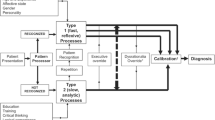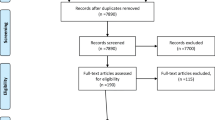Abstract
Extensive research has consistently demonstrated that humans frequently diverge from rational decision-making processes due to the pervasive influence of cognitive biases. This paper conducts an examination of the impact of cognitive biases on high-stakes decision-making within the context of the joint pediatric cardiology and cardiothoracic surgery conference, offering practical recommendations for mitigating their effects. Recognized biases such as confirmation bias, availability bias, outcome bias, overconfidence bias, sunk cost fallacy, loss aversion, planning fallacy, authority bias, and illusion of agreement are analyzed concerning their specific implications within this conference setting. To counteract these biases and enhance the quality of decision-making, practical strategies are proposed, including the implementation of a no-interruption policy until all data is reviewed, leaders refraining from immediate input, requiring participants to formulate independent judgments prior to sharing recommendations, explicit probability estimations grounded in base rates, seeking external opinions, and promoting an environment that encourages dissenting perspectives.
Similar content being viewed by others
References
Kahneman D (2011) Thinking, fast and slow. Macmillan
Berthet V (2022) The impact of cognitive biases on professionals’ decision-making: a review of four occupational areas. Front Psychol 12:802439
Tversky A, Kahneman D (1973) Availability: a heuristic for judging frequency and probability. Cogn Psychol 5:207–232
Baron J, Hershey JC (1988) Outcome bias in decision evaluation. J Pers Soc Psychol 54:569
Brenner LA, Koehler DJ, Liberman V, Tversky A (1996) Overconfidence in probability and frequency judgments: a critical examination. Organ Behav Hum Decis Process 65:212–219
Tykocinski OE, Ortmann A (2011) The lingering effects of our past experiences: the sunk-cost fallacy and the inaction-inertia effect. Soc Pers Psychol Compass 5:653–664
Buehler R, Griffin D, Peetz J (2010) The planning fallacy: cognitive, motivational, and social origins. Advances in experimental social psychology. Elsevier, pp 1–62
Mauboussin A, Mauboussin MJ (2018) If you say something is “likely”, how likely do people think it is. Harv Bus Rev 3:2018
Ghanayem NS, Allen KR, Tabbutt S, Atz AM, Clabby ML, Cooper DS, Eghtesady P, Frommelt PC, Gruber PJ, Hill KD (2012) Interstage mortality after the Norwood procedure: results of the multicenter Single Ventricle Reconstruction trial. J Thorac Cardiovasc Surg 144:896–906
Stanovich KE, West RF, Toplak ME (2013) Myside bias, rational thinking, and intelligence. Curr Dir Psychol Sci 22:259–264
Acknowledgements
None
Funding
The authors do not report any grant support.
Author information
Authors and Affiliations
Contributions
Dr. Daily developed the original idea for the article. Dr. Daily, Dr. Dalby, and Dr. Greiten all helped draft and critically revise the manuscript.
Corresponding author
Ethics declarations
Conflict of interest
The authors have no conflicts of interest/ competing interests to disclose.
Ethical Approval
This is a review article with no human subjects and thus ethical approval was not required.
Additional information
Publisher's Note
Springer Nature remains neutral with regard to jurisdictional claims in published maps and institutional affiliations.
Rights and permissions
Springer Nature or its licensor (e.g. a society or other partner) holds exclusive rights to this article under a publishing agreement with the author(s) or other rightsholder(s); author self-archiving of the accepted manuscript version of this article is solely governed by the terms of such publishing agreement and applicable law.
About this article
Cite this article
Daily, J.A., Dalby, S. & Greiten, L. Cognitive Biases in High-Stakes Decision-Making: Implications for Joint Pediatric Cardiology and Cardiothoracic Surgery Conference. Pediatr Cardiol (2024). https://doi.org/10.1007/s00246-024-03462-4
Received:
Accepted:
Published:
DOI: https://doi.org/10.1007/s00246-024-03462-4




